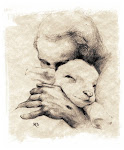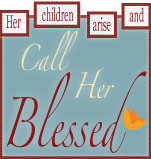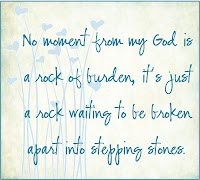
A Journey through Grief
~by Alla Bozarth, Ph.D.
Here is one of Dr. Bozarth's poems, and some quotes from her book, A Journey Through Grief: Gentle, Specific Help to Get You Through the Most Difficult Stages of Grieving:
A Journey Through Grief
I bear down hard
on all life's losses.
Each one is unique, it's true.
As no love is the same,
no loss is.
I have to let each one
out of me separately,
give each loss the scream
that belongs to its
own love's ecstacy (sic).
If I succeed, one by one,
in letting go, in remembering
myself, I may again know
that dreamy sweetness,
the smells of love,
what life is, the feeling
of emergence from bliss.
Grief is a passion, something that happens to us, something to endure. We can be stricken with it, we can be victims of it, we can be stuck in it. Or, we can meet it, get through it, and become quiet victors through the honest and courageous process of grieving.
To surrender to one's own grief and to become actively engaged in it require tremendous courage. This courage is vastly different from putting up a good front, showing a cheerful face to our friends when we're really hurting.
Real courage is. . .owning up to the fact that we face a terrifying task. . .admitting that we are appropriately frightened. . .identifying sources of strength and help, both outside and within ourselves. . .and then going ahead and doing what needs to be done.
***
This constructive kind of hurting is what we feel when we lance an infected wound, or pour iodine over a cut, or force ourselves to get up and walk, no matter how stiff we might feel. And, there are ways to bring about healing which are not necessarily painful.
At the very beginning of the grief process, become aware of ways in which you unnecessarily hurt yourself more. For instance, when you hold yourself in, choking back tears, tightening facial and throat muscles, swallowing down surging emotions, or suffocating feelings, it hurts and it doesn't hurt good--it hurts bad. It hurts in the way a physical wound would hurt if, instead of responding to the pain and bleeding, you ignored it, allowed dirt and gravel to get into it and then, even worse, if you actually ground the dirt and gravel down deep into the wound.
You need to treat a spiritual wound resulting from loss as carefully, tenderly, and realistically as you would treat any physical wound. . .
...Treating an emotional wound involves avoiding the neglect that may result in being hurt, even endangered, by your own defenses. Ultimately, the injured organism heals itself.
Your body has its own healing wisdom within it--and so does your soul, the expressive container of your emotional life.
***
Two vital external things are essential to the self-healing process--time and cooperation. Time speaks for itself. A line from a popular song says, so truly, "What a friend we have in time."
Cooperation is what you bring to the healing process. First, you locate the injury. Then do the necessary things to treat the injury. The essential treatment after sustaining the injury of a loss is that you express fully what the loss means to you. Not expressing grief can lead to depression, repression, and even unconscious oppression of yourself or others.
So, seek out persons whom you trust, close friends or relatives, or competent professional persons. Talk to them about your loss and its meaning. Talk until you have exhausted talk. Before you wear out the patience of your friends, relatives, or professional helpers, or become boring even to yourself...
Talk about your loss and its meaning. ...there is very much that can be said--and the saying of it will help heal the wound.
What you cannot say, write. You might keep a journal. I...began...a grief journal, and I used it solely for the self-therapy of grieving. The blank paper could reject none of my pain and was never bored by it....
Besides talking, let yourself cry as often as needed. You need not cry in front of others, if this inhibits you. First, let yourself cry in private. Then gradually entrust your tears to another person. Let yourself ask to be held. Let yourself be held, but choose the person you ask wisely.
It is better to cry in someone else's presence than to do so alone. In deep pain or genuine sorrow, that is true not because you need an audience, but because you need a witness to your pain, a witness in the religious sense. You need someone to testify to the validity of your feelings, to acknowledge them and to say yes to the good work you are doing in expressing them.
If you feel too uncomfortable to cry much in front of other persons, or if you worry that you will bore them with your tears, then place yourself in the presence of God, and entrust your tears to (Him).
I know that with help I can complete what was left incomplete within myself. I know that I can find my own time and create my own way.
...In grieving, I need to say what was left unsaid and to let myself hear what was left unheard--anger, uncertainty, forgiveness, care, love.
Eventually the life inside me will prove to be more stubborn than the death.
***
I can learn to live creatively with a bruised or broken heart.
A broken heart is a heart made larger and more open than before. And you too can do what you need to do to be healed.
I wish for you the courage to continue and to discover a new possiblity for life and for love.
I wish you well and I send you light, until you can see again the light within you.
~by Dr. Alla Renee Bozarth
Dr. Alla Renee Bozarth is a Gestalt therapist, Episcopal priest, and author of numerous books of prose and poetry, including this book, A Journey Through Grief: Gentle, Specific Help to Get You Through the Most Difficult Stages of Grieving. She is also the founder of Wisdom House in Oregon, where she guides those in need to emotional and spiritual health.











































No comments:
Post a Comment